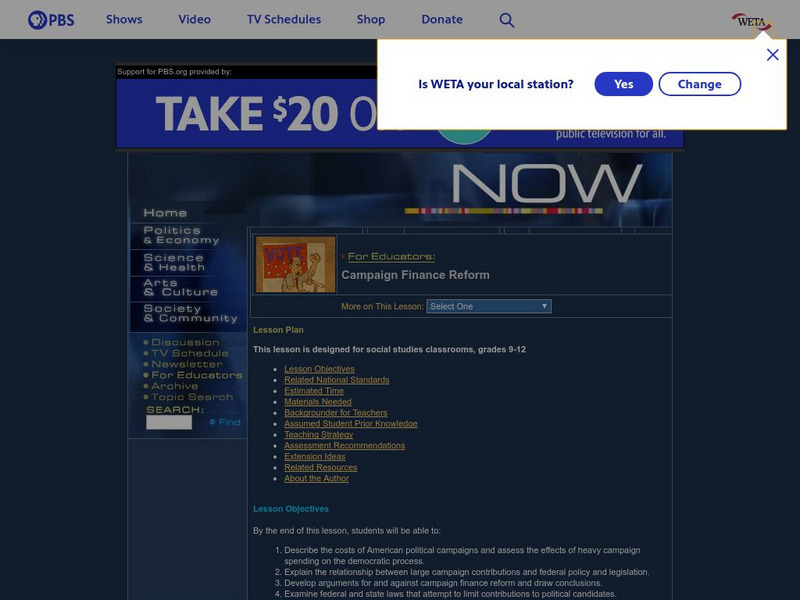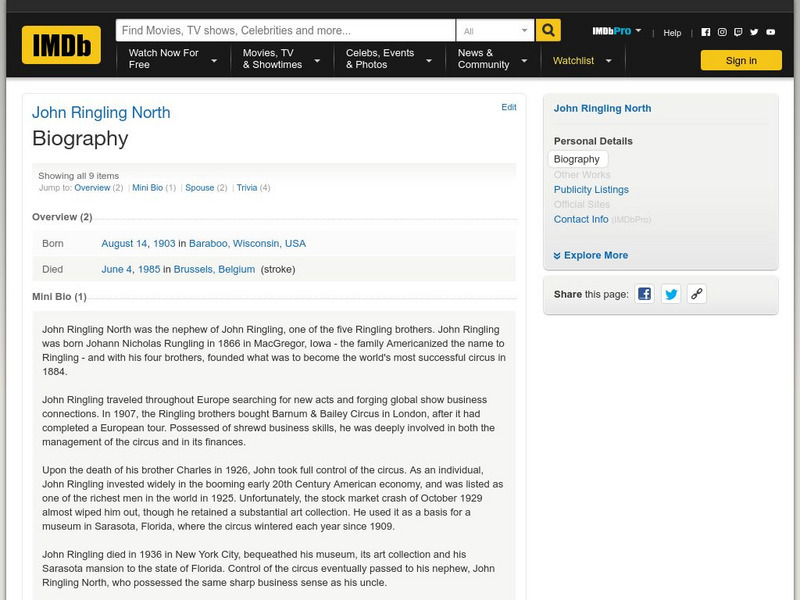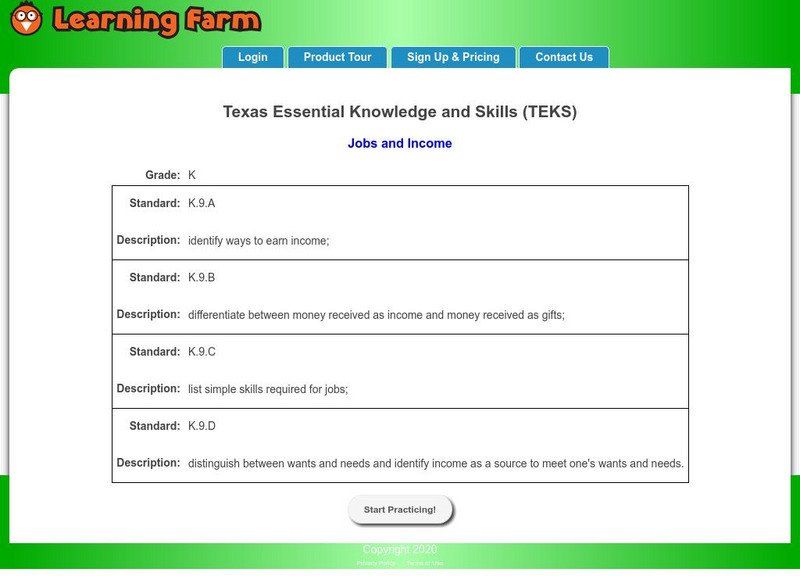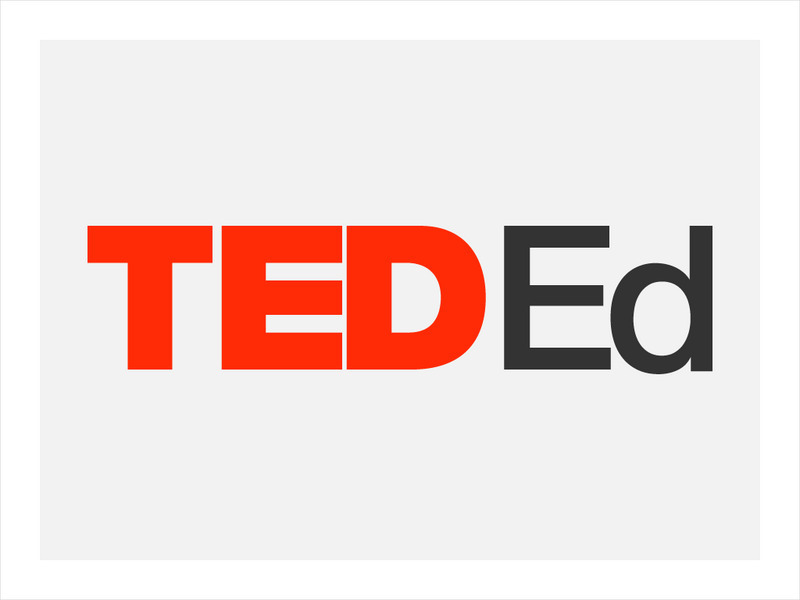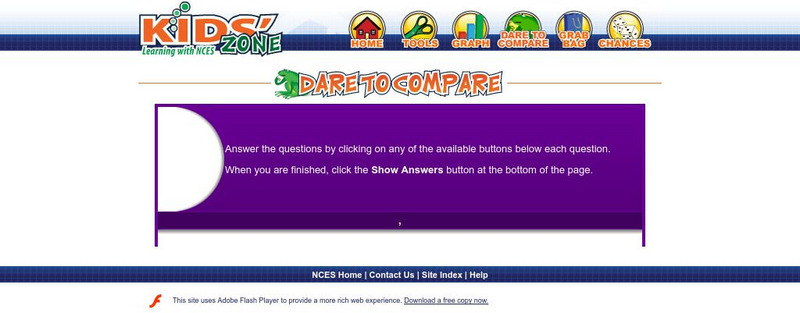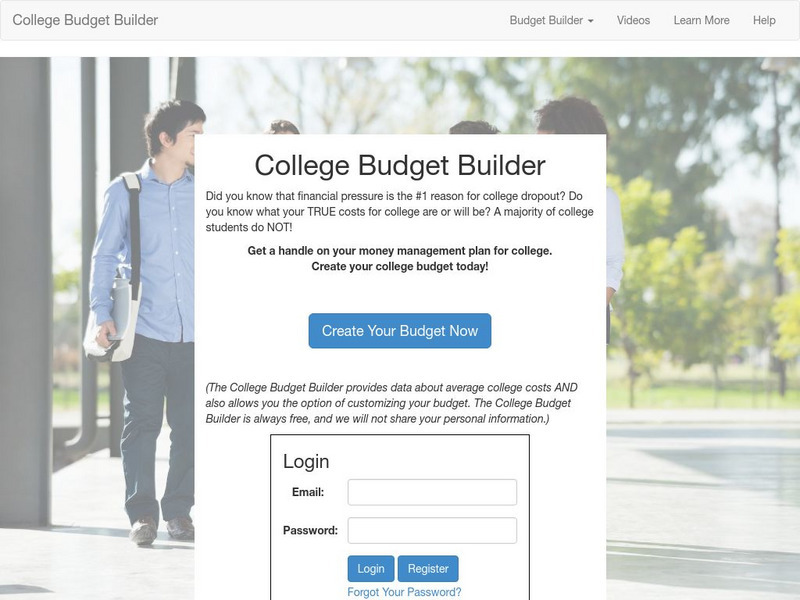Hi, what do you want to do?
Alabama Learning Exchange
Alex: What Does That Car Really Cost?
In order for students to grasp the total cost of their dream car, students must be aware of the hidden costs of a vehicle. This instructional activity will teach students to shop for insurance and a deductible which fits their budget....
Alabama Learning Exchange
Alex: A Scents Able Solution
Students will use a variety of math operations to create a flower bouquet within a budget. This lesson plan was created by exemplary Alabama Math Teachers through the AMSTI project.
Alabama Learning Exchange
Alex: What's the Real Cost of That Car?
This is a Commerce and Information Technology lesson plan. A project requiring research, critical thinking and complex decision-making about factoring all the costs of purchasing a large ticket item - a car.
PBS
Now With Bill Moyers: Campaign Finance (Lesson Plan)
A lesson that takes students through the process of examining the finances of political campaigns. They will review internal documents to determine if wealthy contributors buy government influence, assess the pros and cons of campaign...
Other
Puertorico Guide: Puerto Rico: Economy
A look at the economy of Puerto Rico from earliest colonial times to modern day, from dependence on agriculture to diversification into tourism and finances.
IMDb
Im Db: Biography of John Ringling North
John Ringling North, a native of Baraboo, Wisconsin, was the nephew of John Ringling, one of the founders of the original Ringling Brothers Circus. He managed the circus and its finances for twenty years, beginning in 1947. A brief...
Learning Farm
Learning Farm: Jobs and Income
Practice what you learned about earning money and job skills. Play either in Test Mode or Game Mode to review basic money management skills.
Khan Academy
Khan Academy: How to Establish an Emergency Savings Fund Better Money Habits
An emergency fund is an important part of your financial picture. Learn how much you need and how to get started. Content brought to you by our partner, Better Money Habits.
Other
Stock Market Game World Wide
Over the course of 10 weeks, participants invest a hypothetical $100,000 in Nasdaq, Amex, and NYSE-listed common stocks. They research stocks, study how the financial markets work, choose their portfolios, manage budgets, follow...
Other
Visa: What's My Score
When you are ready for a car, for a place of your own, for nice furniture, would you be able to charge it on a credit card? Here's a site that can give you great advice about building good credit when you head out on your own.
University of Missouri
Wise Pockets World: Wise Pockets Clubhouse for Students
As students read the stories in the library, they learn about earning money, spending and saving money, and a bit about borrowing and lending money as well. Each story is followed by a short quiz and a printable activity.
TED Talks
Ted: Ted Ed: Would Winning the Lottery Make You Happier?
Imagine winning a multi-million dollar lottery tomorrow. If you're like many of us, you'd be ecstatic, unable to believe your good luck. But would that joy still be there a few years later? Raj Raghunathan describes a phenomenon called...
Other
Biz Kids: Break the Bank
In this interactive game, you are a worker at a community bank, helping customers get good loans and save for their future. However, the terrible Mr. Boar and his clerks from a payday loan company have infiltrated your bank! Rally the...
Other
Biz Kids: Bring Home the Bacon
Bring Home the Bacon is an exciting interactive way to learn the concept of supply and demand. More demand, more customers, but don't get too carried away because upgrading your investments might be worth the wait!
US Department of Education
Nces Kids' Zone: Dare to Compare: 12th Grade Economics
Find out how you compare with students nationally and from around the world by taking the interactive online quiz.
Other
Economic Awareness Council: Student Budget Builder
[Free Registration/Login Required] Use this series of questions and calculators to estimate how to pay for your college education. Use this as an exercise in finance, or with the real amounts you will have available to pay for your...








